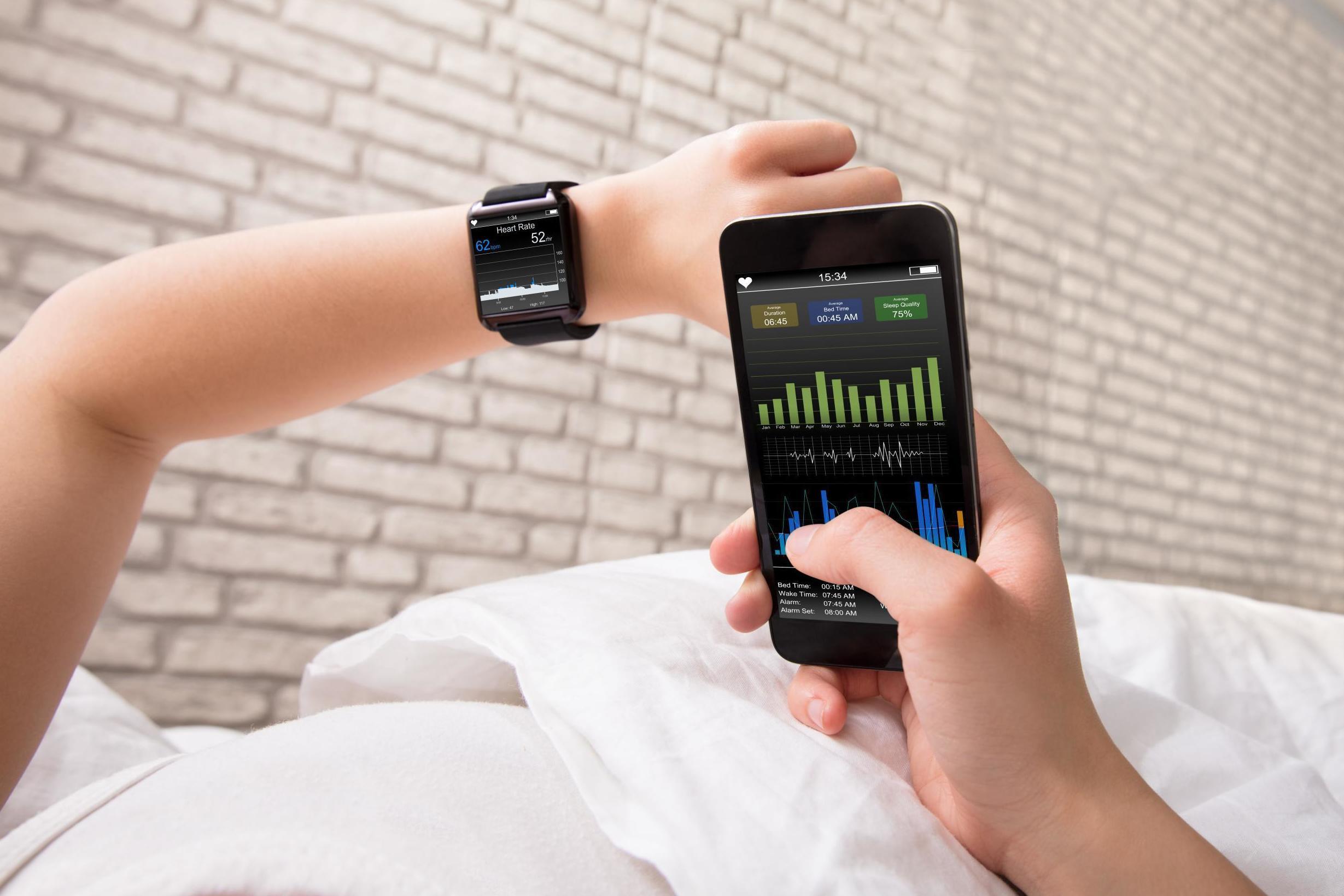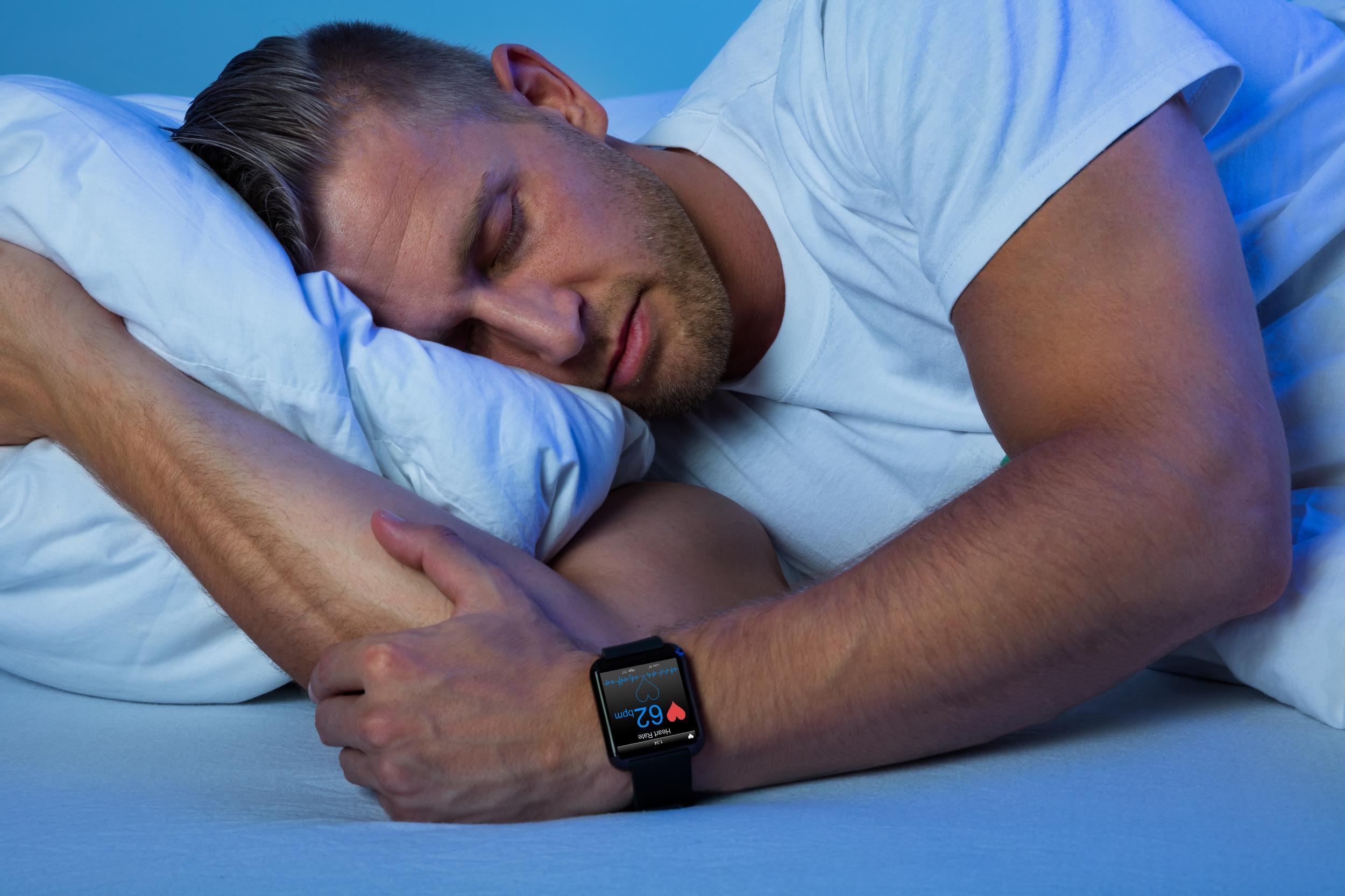'Orthosomnia': New disorder affects people who track their sleep, study finds
Sleep trackers are contributing to sleep-related anxiety

Your support helps us to tell the story
From reproductive rights to climate change to Big Tech, The Independent is on the ground when the story is developing. Whether it's investigating the financials of Elon Musk's pro-Trump PAC or producing our latest documentary, 'The A Word', which shines a light on the American women fighting for reproductive rights, we know how important it is to parse out the facts from the messaging.
At such a critical moment in US history, we need reporters on the ground. Your donation allows us to keep sending journalists to speak to both sides of the story.
The Independent is trusted by Americans across the entire political spectrum. And unlike many other quality news outlets, we choose not to lock Americans out of our reporting and analysis with paywalls. We believe quality journalism should be available to everyone, paid for by those who can afford it.
Your support makes all the difference.A new sleep disorder has arisen from the pursuit of a perfect night’s sleep, according to a new study.
Published in the Journal of Clinical Sleep Medicine, researchers dubbed the sleep disorder: “‘Orthosomnia,’ with ‘ortho’ meaning straight or correct, and ‘somnia’ meaning sleep” - and it is affecting people who obsess over the results of their sleep and fitness trackers.
According to the researchers: “The use of wearable sleep tracking devices is rapidly expanding and provides an opportunity to engage individuals in monitoring of their sleep patterns.
“However, there are a growing number of patients who are seeking treatment for self-diagnosed sleep disturbances such as insufficient sleep duration and insomnia due to periods of light or restless sleep observed on their sleep tracker data,” the report reads.
Relying solely on the data on their trackers, people are convincing themselves that they suffer from a sleep disorder, even when they may not.
The subsequent outcome is people who are becoming obsessed with getting a “perfect” night’s sleep.
In order to study the effects of sleep trackers, which an estimated 10 per cent of US adults wear on a regular basis, the researchers looked at cases where adults were seeking help due to self-diagnosed sleep-related issues.

In the first case, the adult male sought medical help for treatment of “irritability, cognitive difficulties, and fatigue,” which he found only affected him on days he didn’t get a full eight hours of sleep, as tracked by his sleep tracker.
And in all the cases, the patients had been tracking their own sleep each night and had become worried over periods of “restless sleep” and low “sleep efficiency.”
Rather than relying on their bodies and how they felt when they woke up each morning, it was found that the patients relied heavily on their sleep trackers to tell them whether they had gotten a restful sleep.
However, it is unknown whether the patients suffered from disordered sleeping before they started self-tracking their sleep.
According to the National Sleep Foundation, adults typically require seven to nine hours of sleep per night, depending on a range of factors and varying for each individual person.
But if you wake up feeling refreshed and awake, you have typically had a good night’s sleep - despite what a sleep tracker may tell you.
Instead of being helpful, sleep trackers may instead be reinforcing “sleep-related anxiety or perfectionism.”
It looks like counting sheep may be a better method.
Join our commenting forum
Join thought-provoking conversations, follow other Independent readers and see their replies
Comments